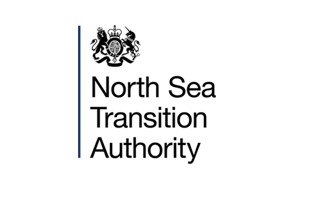
-
Net zero solutions and digital applications drive growth
-
1,200 innovative equipment and services reported as sector seeks continuing offshore growth with cost-effective solutions
-
Focus on new technology to support security of supply, net zero and the energy transition
The triple targets of supporting production, reducing emissions, and accelerating the transition to net zero are driving technological innovation in the North Sea.
The North Sea Transition Authority’s (NSTA) 2023 Technology Insights report shows that 1,200 new technologies, including aerial drone and self-driving subsea vehicles, have been reported in the latest survey, a significant upswing from the 1,080 developments recorded the previous year, and 880 in 2021.
A total of 55 operators contributed to the NSTA survey which showed that innovations in the fields of Net Zero and digital have risen significantly. Net Zero technologies have risen from 61 recorded in 2021 to 140 in 2023, and Data and Digital technologies has grown from 190 to 381 in the same time period.
Facilities management technologies, including deployment of monitoring equipment by aerial drones and autonomous underwater vehicles remain the single largest place for innovation, while there has been significant growth in the areas of installations and topsides, and reservoir and well management.
But innovative thinking remains vibrant across the industry with exciting new ideas being implemented in the areas of seismic and exploration, well drilling and construction, subsea systems, well P&A and facilities decommissioning.
Overall spend was distributed across the disciplines with the largest sums spent on well drilling and construction and installations. Overall, operators committed £200m to transfer spending – where they bought technology from suppliers – and £65m in their own research and development. Both figures were up on the previous year where £156m and £49m were invested respectively.
The report, a web version of previously circulated analysis to industry specialists via the Technology Leadership Board, is now accessible easily to everyone. It details the latest developments across 10 categories and gives examples of innovations which demonstrate how the new technology is being implemented and the benefits they are having.
The growth of technology to support net zero is demonstrated in the Installations and Topsides section of the report which highlights the emphasis that operators are placing on emission reduction and low carbon power technologies.
Specific examples include fixed Forward-Looking InfraRed cameras for methane emission measurement, a greater uptake of flare gas recovery technologies to reduce hydrocarbon waste, and wider use of digital twin technologies to support offshore asset interactions.
Also, the growing adoption of low carbon power technology and energy efficiency technologies reduce carbon emissions - illustrated by the use of hybrid power systems, waste heat recovery and electrification-enabling technologies.
Similarly, the focus on security of supply is demonstrated in the Reservoir and Well Management section which highlights the adoption of advanced modelling techniques and water shut-off systems being introduced alongside other techniques to improve and enhance recovery.
The NSTA is committed to supporting industry in using technology to enhance energy security, reduce emissions and accelerate the transition to net zero and has therefore helped to boost awareness of the UK Energy Technology Platform which provides a showcase for new technologies and brings together suppliers and end users.
Ernie Lamza, NSTA Technology Manager, said:
“The North Sea is full of opportunities related to hydrocarbons and net zero, but at the same time can be a difficult place to work. Operators must focus on finding solutions to many challenging problems. Their innovative approach is clear in the continuing development and use of the new technologies highlighted in this report.
“World-leading technologies, skills and experience boost production and support the energy transition, placing UKCS workers and companies in a great position to secure work and deliver products and services in the UK and in other producing regions around the world.”
Notes to editors:
For further information please contact:
Tel: 07785 655620
Email: pressoffice@nstauthority.co.uk



